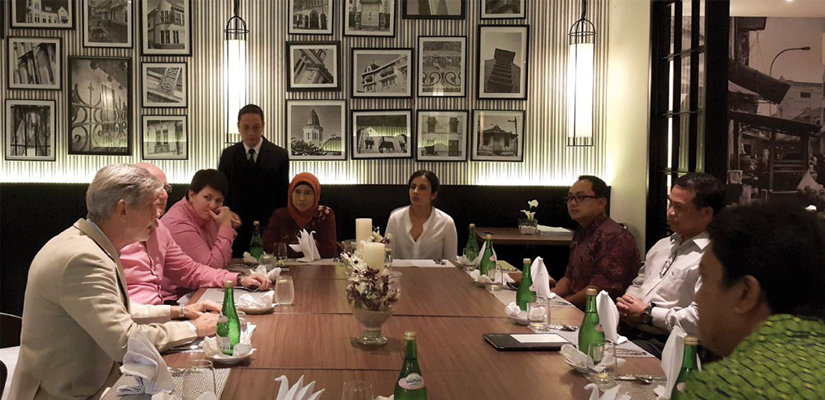The greatness of NASA products recognized by Australia
24 Mar 2022
09:33

Australian Ambassador to Indonesia, H.E. Paul Grigson through PRISMA (Promoting Rural Income Through Support for Markets in Agriculture) on September 30 in Surabaya, specifically invited PT. NATURAL NUSANTARA (NASA), represented by Ir. Joni Riyanto (Technical Service & Public Relations Manager) to discuss the ongoing cooperation and subsequent plans related to farmer empowerment programs and increasing productivity of cassava commodities in Trenggalek Regency (East Java) and cashew in Dompu and Bima (NTB) Regencies.
Cassava production in Trenggalek is still low, coupled with the high level of pest attack (uret) makes the income of cassava farmers very low. After the application of NASA products in the form of NASA POC, HORMONIK and PENTANA together with the application of correct cultivation techniques, there was an increase in production from the range of 3 kg/tree to the range of 8 kg/tree or an increase of 167% and the attack of burrowing pests (ureth) was also very much reduced. It is clearly very profitable economically. If the population per hectare is around 9000 trees, with an increase of about 5 kg per tree, the total increase will reach 45 tonnes/ha. With a price of Rp. 1,500, -/Kg, farmers have the potential to get additional income of Rp. 67.5 million per hectare. Even though the additional cost of spending on NASA products did not reach one million rupiah per hectare.
Meanwhile, for cashew commodities in Dompu and Bima Districts, the toughest obstacle is the attack of white leafhoppers or white leafhoppers (Lawana Sp.) and Helopeltis which resulted in very low production, even some planters did not harvest for the last few years. After the application of NASA Organic products (BVR, NASA POC and HORMONIK) the pest attacks were reduced in the range of 50% - 90%. Production also increased from 100% to 200%, for example from 5 kg/tree to 10 kg/tree and some from 25 kg/tree to 75 kg/tree. Economically, there are planters who get additional income of up to Rp. 160 million from the 200 trees that NASA products apply to.
Based on the presentation of the testimony, the Australian Ambassador seemed enthusiastic and gave his appreciation to PT. NATURAL NUSANTARA (NASA). Even Mr. Jim Tomecko as a Program Consultant who is a Canadian citizen immediately invited the expansion to the onion commodity which is currently running in Probolinggo Regency. Plans to collaborate with other donor institutions from Australia, namely ARISA (Appied Research and Innovation Systems in Agriculture Project) which is also present to work on shallots in Lombok (NTB). Another offer came from Mr. Domingo Lambarosa who is a Filipino citizen for cooperation in sweet corn commodity.
If other countries recognize and boast of NASA products, of course we as Indonesian citizens should be much more proud and confident of the greatness of NASA products.
